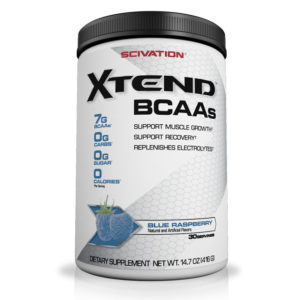In home trainer Philadelphia area addresses BCAA
In home Trainer Philadelphia area addresses Branch Chain Amino Acids
According to Dr. Phil Nicolaou, In home trainer philadelphia area, BCAAs – Branched Chain Amino Acids are Essential Nutrients (Essential in nutrition means that it must be consumed in the diet, the body has no mechanism to manufacture it. Non-essential can be manufactured in the body from other nutrients) that must be obtained from proteins you absorb from the foods you eat.
Branched Chain refers to their chemical structure. The BCAAs are amino acids having aliphatic side-chains with a “Branch” (a central carbon atom bound to 3 or more carbon atoms), these are Leucine, Isoleucine and Valine.
Medically, BCAAs are used to treat burn victims, ALS patients, brain conditions due to liver disease, Tardive Dyskinisia, McArdle’s Diease, poor appetite in the elderly kidney failure or cancer patients and to slow muscle wasting in bed-ridden patients. Doctors have used BCAAs to prevent fatigue and improve concentration. Much of what we know about BCAAs protective effects on muscle come from the experience of medical patients, according to lucho chrisalle RD of Exercise and Nutrition works.
BCAAs are meant to stimulate the building of muscle proteins and reduce muscle breakdown. According to the IFPA, Athletes use BCAAs to improve exercise performance and reduce muscle protein breakdown during and immediately following exercise.
Question: Do you take BCAAs before, during or after exercise?
Answer: YES! In home Trainer in Philadelphia area Phil Nicolaou recommends this use before, during and post exercise.
Recommendations: It is typically recommended that you take BCAAs Before, During and After exercise due to different qualities of BCAAs. In Home Trainer Philadelphia, Phil Nicolaou suggests BCAA are best consumed, before, during and post exercise.
Taken Before Exercise: BCAAs are purported to improve mental and physical performance. Since exercise increases Trytophan synthesis, which increases Serotonin production, which causes fatigue, BCAAs are thought to reduce Serotonin build-up, this reduces perceived exertion and mental fatigue.
Taken During Exercise: BCAAs are purported to enhance protein synthesis in both liver and muscle cells. Since BCAAs can be oxidized in the cell’s mitochondria, it is possible for BCAAs to provide energy for exercise. Studies have shown that BCAAs improved insulin resistance, glucose tolerance, beta cell function and energy metabolism.According to Dr. Phil Nicolaou in home personal trainer philadelphia area, this is a great post workout recovery supplement and it is NSF approved.
Taken After Exercise: BCAAs are thought to speed repair of micro tears in muscle cells caused by exercise; Improves anabolic hormone profile(to build muscle) and reduces incidence of DOMS(Delayed Onset Muscle Soreness). According to in home trainer in phiadelphia area, Phil Nicolaou
Keep in mind that there is still a great deal of conflicting research as to the efficacy of the use of BCAAs as an exercise supplement. This can be a result of the typical issues surrounding supplementation: i.e.: Individuality, manufacturing quality, quality of the individuals’ diet., etc. Your best bet on determining if BCAAs work for you are: You may also have to try a few different manufactures to find the right one for your body chemistry. Some nutrition experts will tell you if you have adequate protein intake at about 2.0 grams/Kgrm of Body Weight, BCAAs are not necessary. In home trainer in Philadelphia area, Phil Nicolaou recommends them as a edge in any workout routine. As far as supplements go, this is one of the few that actually is beneficial and NSF certified.
Side Effects: BCAAs seem safe for most people up to 6 months of use. Side effects can include fatigue and loss of coordination. Excess protein increases nitrogen excretion causing a loss of water leading to dehydration and kidney stress. To avoid this, consume more water, keep your urine clear or nearly clear and calculate your BCAA intake as part of your total protein and do not exceed 2.8g/Kgrm of Body Weight. in home personal trainer in philadelphia area, Dr. Phil Nicolaou recommends you take BCAAs only on workouts days and split your desired intake: 1/3 20mins before, 1/3 during and 1/3 immediately after your exercise session.
If you are trying to get the most out of your workouts, any experienced athlete will tell you “Nutrition is 80% of your Battle!”
Need more insight, contact In Home Trainer in Philadelphia area, Dr. Phil Nicolaou TODAY!
Contact US
Article also courtesy of the IFPA.
